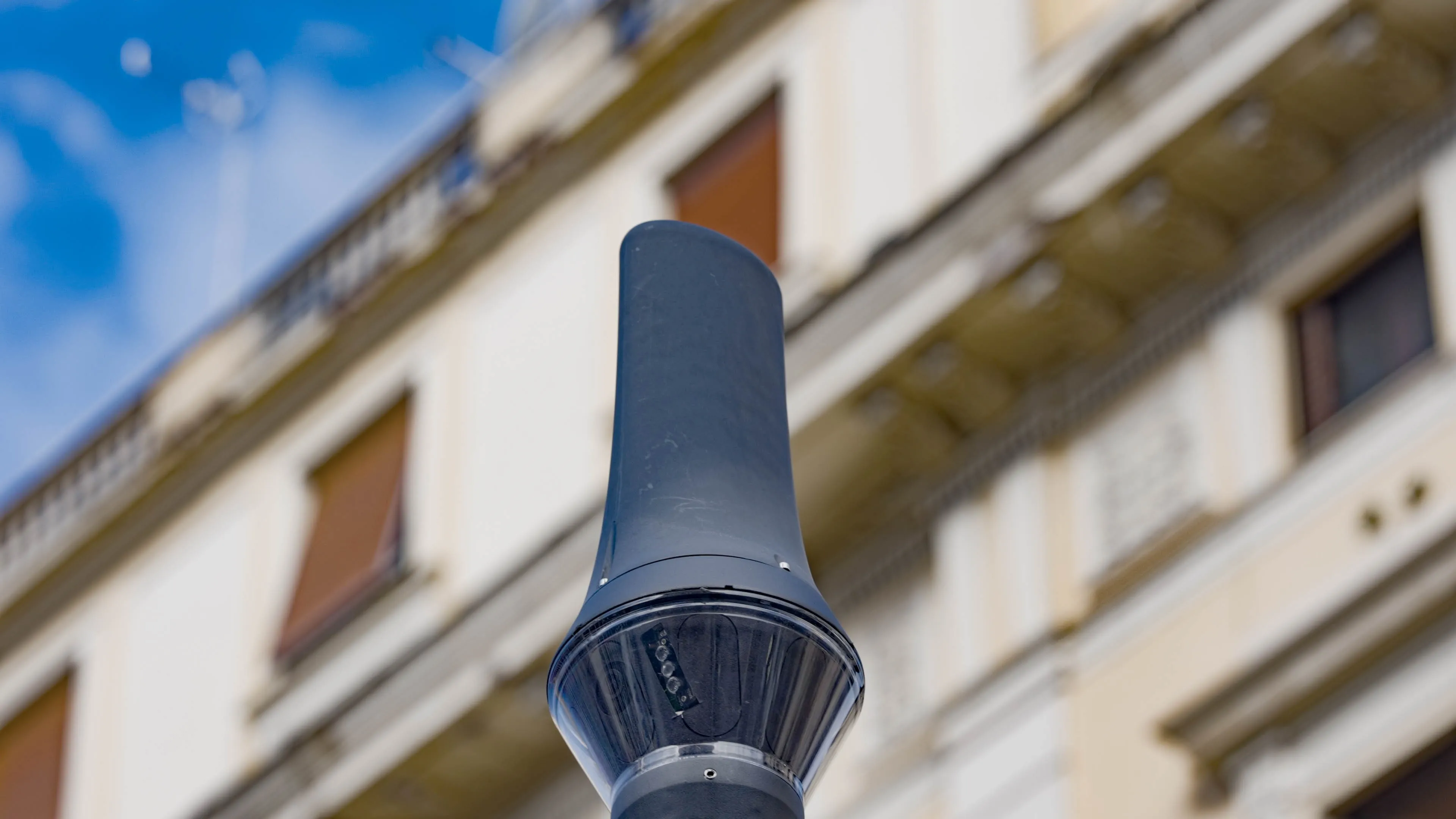
Envision is running smart city trials in Rome, using Sony image sensors, to cut the city’s transport-related emissions.
The three projects, due to start in early June, aim to make parking easier, reduce accidents at pedestrian crossings and minimise crowding on the Italian capital's buses.
Sony Europe's IMX500 sensor, which the company says is the first to integrate an AI processing functionality, is at the heart of the trials.
Two of the sensors are installed by TTM Group in Envision's smart tips (pictured), which have been put on top of some traffic lights in Rome’s city centre.
The sensors scan roads and parking spaces, sending real-time data elaborated by neural networks on available parking spaces as well as on the number of people waiting at bus stops, entering or leaving a bus, and waiting to cross - or actually crossing - the road.
A neural network was trained to identify all these factors during a preliminary phase of the trial.
Sony insists that no images are stored, or leave the sensor, thus satisfying privacy requirements.
The company says this allows the city to reduce the bandwidth required, to scale it easily using existing networks, and to cut power and communication costs.
Drivers will be alerted via a smartphone app and directed to an empty parking space closest to their destination.
The location data is streamed in real time through the smart tip, then processed by Sony's sensor and sent to Envision's cloud software platform. The coordinates of the parking space’s location are overlaid on a map displayed on the app.
Rome's authorities believe that traffic caused by drivers cruising the streets to park is a key contributor to congestion, and this trial will aim to assess the scale of the problem.
When it comes to pedestrian safety, the neural network system detects that a zebra crossing is in use and low-latency smart lighting on the road will make pedestrians more visible, alerting drivers to their presence.
The length of bus stop queues will also be processed by the sensor in the smart tip through the neural network and sent to the Envision software platform.
This is aggregated and made available to bus network operators, so that planning and scheduling can be adjusted to avoid vehicles packed with riders.
“This is a clear and concrete example where Sony’s smart vision solution can serve our customer’s purpose while respecting people’s privacy," says Antonio Avitabile, MD of corporate alliance and investment at Sony.
“We have a vision of achieving more sustainable and liveable cities, and through the IMX500 scalable platform we can substantially accelerate this process.”
The project with the City of Rome also involves Mobilità Roma and lighting specialist Citelum, which is responsible for putting the smart tips into the streetlights.








